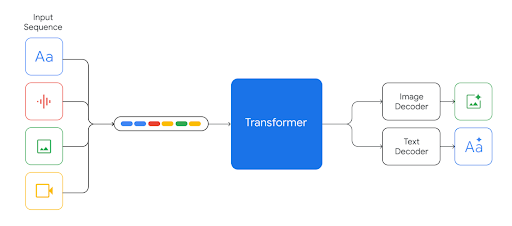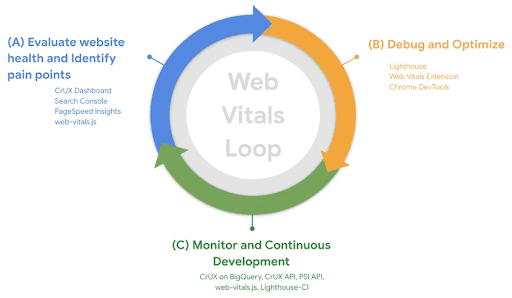Google has announced Gemini, a new super-powerful AI model that it claims will be a game-changer in the SEO and search industry.
According to Google, Gemini AI is much more powerful than ChatGPT and can perform a greater variety of tasks in a better way.
In addition, Google boasts of Gemini’s improved multimodality and unlimited capabilities.
The SEO community is mainly interested in how this new AI model will change SEO. How will our routine transform in this regard?
How will Gemini affect SERPs, rankings, content, and ranking factors?
Will it actually affect anything or not? Let’s try to figure this out.
What Is Google’s Gemini?
Gemini is a new multimodal AI model developed by Google, the first model to outperform human experts on MMLU (Massive Multitask Language Understanding).
As it is written in Gemini technical documentation, it is
“A family of highly capable multimodal models, trained jointly across image, audio, video, and text data for the purpose of building a model with both strong generalist capabilities across modalities alongside cutting-edge understanding and reasoning performance in each respective domain.”
-
 Image from Google DeepMind, February 2024
Image from Google DeepMind, February 2024
What Is Gemini Capable Of?
Google spokespeople say Gemini can do many things and is much more powerful than its key rival, ChatGPT.
Gemini is multimodal, so it understands text, video, voice, and images, and converts all of that into written clear text.
Gemini AI has already replaced Google’s Bard, so you can test it if you want. Spoiler: dialogs really seem quite natural and human-like.
How Will Gemini Transform SEO?
This is where the fun begins. SEO professionals are very intrigued by how search optimization will change when Gemini becomes widely used worldwide.
Will there be any tangible drops in rankings? What should we prepare for?
To be honest, today, it is hard to say something for sure. Google could roll out its AI-powered SGE first or implement Gemini into existing systems first.
AI is already affecting SEO in many ways, and we’ve been watching this for quite a while.
So, based on what ChatGPT gave us, I can assume that Gemini AI will cause or speed up the following changes:
Search Will Become Multimodal
Multimodality is not a totally new thing in search — we already have and widely use voice search and Google Lens.
With the incorporation of Gemini, multimodal queries will become as widespread as ordinary text searches.
People will upload images and ask, “Find socks with the same pattern” or “Can I eat this?”
Both typing the questions and speaking them aloud.
In terms of SEO, this shift will boost image optimization, as images will have more traffic potential.
Moving From Standard SEO Metrics To User Interaction
SERP personalization already exists; Google has confirmed this many times.
With Gemini’s AI capacities, it will be even easier to understand users’ intent and track their behavior on websites.
As a result, the pages on the top will not be those with the highest domain authority (or keyword density, or anything else of traditional SEO ranking factors) but the ones where users click often and where they spend more time.
Considering the above-mentioned, click metrics may become crucial ranking factors.
Growing Importance Of Core Web Vitals
As we move from standard SEO metrics to user interaction, your website’s pages must be visually perfect.
Not in terms of style – tastes are different – but in terms of visual stability and navigation.
Everything has to load fast and be displayed correctly, and any element should not interfere with user interaction with a website. So, we are approaching Core Web Vitals optimization becoming more important than ever.
-
 Image from Web.dev, February 2024
Image from Web.dev, February 2024
Taking care of a page’s visual stability and loading speed is likely to start playing a crucial role in search optimization.
Core Web vitals are probably the most interconnected with user engagement.
Responsive Design Is A Must
Responsive design is crucial for your site to look good on any device and screen.
It is already important in terms of mobile-first indexing but will become even more important when SGE is finally released.
This is also connected to user engagement — a page must be displayed correctly on any device.
If your page is available for more users regardless of their screen size, then you will have a higher chance of being labeled good in the eyes of Google.
Customer Journey Shift
Earlier (and even today), an average customer journey in Google looked like this:
Enter a query > run the search > look at the SERP > click on a snippet.
With Gemini and SGE becoming live, customer journeys will most likely transform into this:
Enter a query > run the search > get an answer.
This will happen because SGE, powered by Gemini, can provide instant rich answers right in the SERP.
What’s more, these answers will include links showing where the information was taken from. It looks like there is no need to visit websites — all the info is right here.
Why optimize CWV in this case, you may ask? Users will not need to visit pages, so why care?
The answer is simple: To be selected for SGE snippets, a website should have perfect crawlability so that Googlebot can easily access and scan every page to get information.
Besides, there are still transactional queries. In this case, a user will have to visit a seller’s site anyway to conduct a purchase.
Search Queries Become More Conversational
Compare how we form search queries in Google to how we “talk” to Bard or Chat-GPT.
Instead of entering a raw search term, we communicate to AI chats the way we’d talk to a person. We build a dialogue, ask questions, use colloquial speech, etc.
Here are some examples from my recent chat with Bard after uploading an image:
please draw a pic based on what’s on the image. use it as some sort of picture “skeleton”
come on. Can you draw?
I need an image, not a description
If you are curious if Bard gave me an image, the answer is no. It cannot generate images. Not yet, at least.
When Gemini and SGE go live, we’ll likely talk this way to Google and move from traditional keyword queries.
This trend already exists in voice search, so it can be easily taken to traditional search queries.
Shifting From Keywords To Context
If queries will shift to more conversational phrases, then there will be no actual need to use keywords the way SEO pros have been doing for ages.
This means that the concept of keywords would keep transforming into entities.
The quality of a page will be defined not by keyword density but by the context and how detailed an entity is described on the page.
Eventually, the shift to entities will affect how we create content. Earlier, a “good” text meant that the text contained a certain number of keywords matching the query.
With the entity-based approach taken on, a “good” text will be the one deeply covering the entity and including a set of minor entities related to the main one. Sure thing, depending on the query context.
The ability to understand the context behind queries has always been the thing that Google was working hard on and constantly improving with each update.
So, more than ever, natural content is likely to become a trendy trend really soon.
Simplified Content Creation Process
The process of content creation will become faster. And, before you ask, no, the content will not be 100% machine-written.
AI may be very smart, but it’s still AI.
It cannot be better than a human because it doesn’t create anything new – it only uses the material it was trained with or found on the internet. Still, AI can be a perfect assistant.
Gemini is a very, very capable and clever AI, and it is really good at wording and phrasing (better than ChatGPT, judging by my own experience).
So Gemini AI can suggest tons of text abstracts (outlines, summaries, etc.) based on your prompts.
This will help writers deal with writer’s block. Besides, Gemini can help you formulate some paragraphs or rewrite specific abstracts considering the tone of voice you ask for.
In addition to writing assistance as it is, Gemini, due to its multimodality, is good at converting images, videos, and handwriting into printed text.
This may automate processes like creating subtitles for videos and translating them.
So What Do SEO Pros Have To Wait For?
In brief, the SEO industry can expect the following Gemini-related changes:
- Growing multimodality.
- User interaction taking over standard SEO metrics.
- Core Web Vitals optimization.
- Responsive design.
- Customer journey becomes shorter.
- Conversational queries.
- The entity-based approach in content creation.
- Writing becomes faster due to AI assistance.
But, to be honest, today, we can only watch the trends and monitor the news.
SEO will still be shocked when SGE and Gemini go live and start affecting search optimization, not hypothetically but in real life.
But we have survived through many updates and SERP fluctuations, so we are not scared.
SEO is becoming user-centric even now, so the changes triggered by Gemini and SGE are quite logical.
Keep your site’s health perfect, and stay tuned to updates. Clearly, 2024 has a lot of interesting developments in store for us.
More resources:
- How To Build A Future-Proofed SEO Strategy When AI Is Changing SEO
- The 6 Best AI Search Engines To Try Right Now
- How To Rank On Google (According To Danny Sullivan At Google)
Featured Image: Andrey Suslov/Shutterstock





![AI Overviews: We Reverse-Engineered Them So You Don't Have To [+ What You Need To Do Next]](https://www.searchenginejournal.com/wp-content/uploads/2025/04/sidebar1x-455.png)